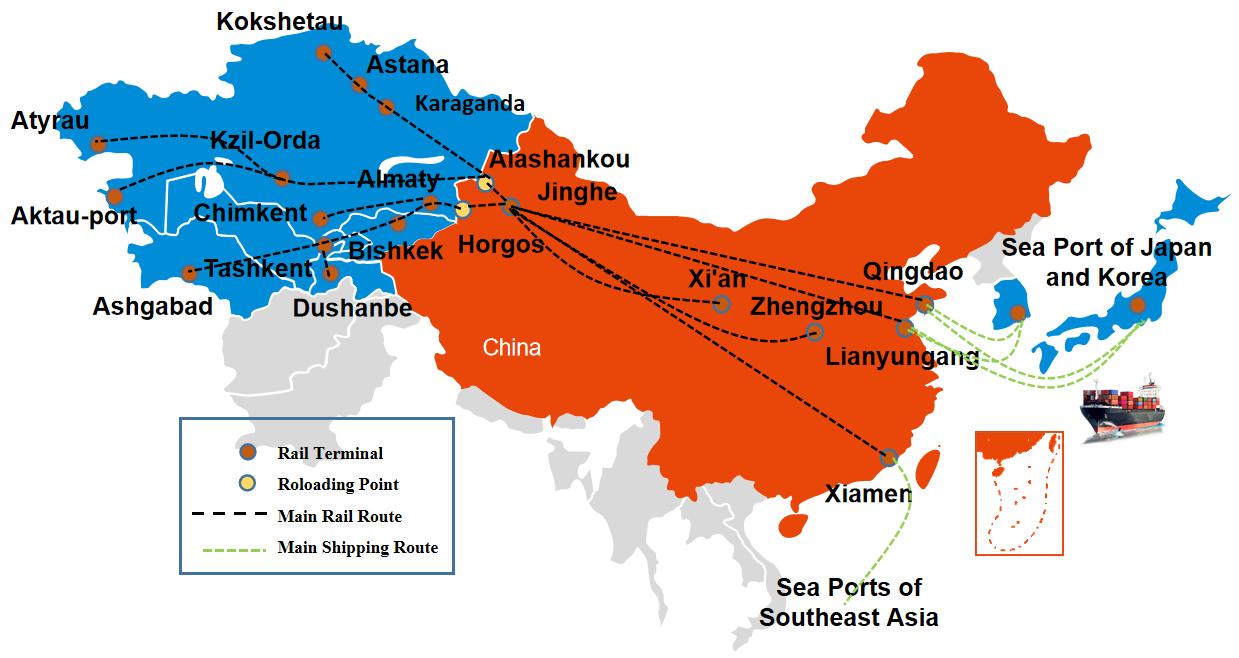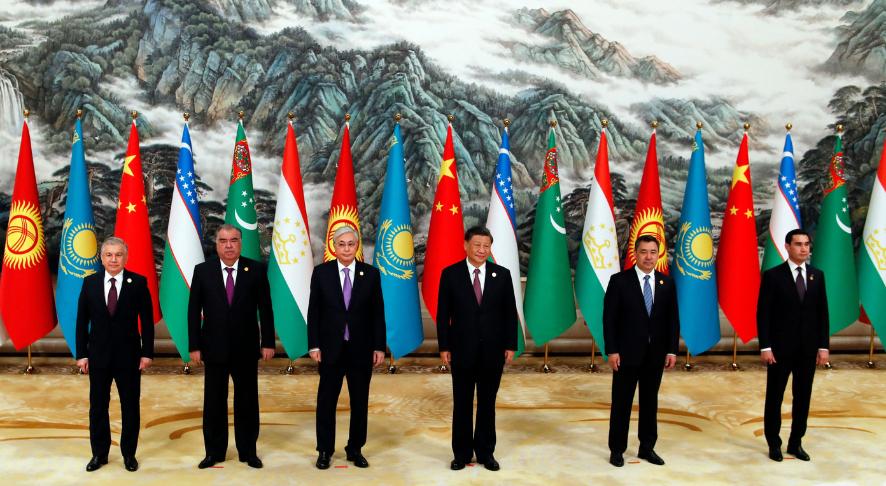China’s engagement with Central Asia overshadows Russia Navigating economic prosperity
In 2023, China eclipsed Russia as the leading trade partner of all five Central Asian states for the first time, according to official statistics. Since Russia launched a brutal invasion of neighbouring Ukraine, it re-routed all its resources and focus to the frontline, which resulted in the diminishing influence of Moscow in the post-Soviet region.
Although it is arguable to what extent Moscow's influence decreased in the Caucasus and Central Asia, economic indicators suggest that Russia's economic monopoly is challenged by its strategic-ally China.
China's expanding geopolitical interests in Central Asia and its aspirations to supplant Russian influence following the Ukraine conflict have become increasingly conspicuous. Vital evidence of the growing Chinese influence was the May 2023 China-Central Asia Summit held in Xi'an, which resulted in over $3.7 billion in investments from China to Central Asia.
On an individual basis, China accounted for a 21.3 per cent share of Kazakhstan's total foreign trade, according to statistics compiled by Kazakhstan's National Statistics Bureau.
In 2023, the Central Asian leaders showed an increased willingness to institutionalize cooperation through annual summits and unified approaches to third countries. Indeed, Central Asian countries sought more potential economic partners to diversify the market and get more financial dividends. In this regard, China - a global economic power, is the most viable partner.

Since Russia’s 2022 invasion of Ukraine, the trade and infrastructure focus has shifted to East–West connectivity, with the Middle Corridor — from China to Europe via Central Asia and Azerbaijan — gaining attention as an alternative to main Europe–China rail connection through Russia.
Central Asia occupies the central part of China's foreign policy agenda, given the rich energy sources of the region. For example, Kazakhstan is one of China's primary energy suppliers. In an effort to diversify energy resources, the Beijing government has made multi-billion-dollar investments in Kazakhstan's energy sector for many years.
The China National Petroleum Corporation (CNPC) is among the major shareholders of Kazakhstan’s oil industry. Oil and gas imports by land-based pipelines as an alternative to sea routes are extremely important for the Chinese government and economy.
Moreover, according to Chinese figures, Beijing's transit trade with Kazakhstan has doubled over the past year and currently stands at 1.5 million tons. China is also the largest trading partner to Kyrgyzstan and Uzbekistan by imports and is Turkmenistan’s largest trading partner by exports.
The positive trade dynamics with China boosted the idea in Central Asian countries that expanding cross-border transport corridors can bring enormous opportunities and contribute to the economic recovery of countries in the region.

Indeed, China's economic ambitions in Central Asia are limited, particularly toward two leading countries, Kazakhstan and Uzbekistan. Since 2016, President Shavkat Mirziyoyev created favourable conditions for China to enter the Uzbek market because of his measures to liberalize the country’s economy.
As a transit country, Uzbekistan is becoming more important to China daily. Uzbekistan's geostrategic position makes it a convenient corridor to international seaports in the Caspian Sea, the Persian Gulf and the Black Sea.
Undoubtedly, China's pragmatic economic agenda provoked a reaction from the West as the US and the European Union (EU) doubled their efforts to establish direct partnerships with Central Asian states in light of Russia's isolationism.
As such, the November 2022 EU–Central Asia Connectivity Conference in Samarkand was attended by the high representative of the EU for foreign affairs and foreign ministers of the five Central Asian countries. Such perspectives of partnership occurred due to the Central Asian state's decision to distance themselves from Moscow's aggressive rhetoric and brutal war in Ukraine.
Following Russia’s invasion of Ukraine, Central Asia has economically benefited from re-routed trade and disaffected Russians setting up bank accounts and small businesses. As a result, regional states found more space for diplomatic manoeuvring to decrease economic dependence on Russia and tackle the existing problems of landlocked geography.
Consequently, Central Asia must prioritize attracting diverse external powers into the region to restore equilibrium in the existing prevalence of Chinese influence and safeguard their broader strategic interests from being overshadowed by a single dominant force.








